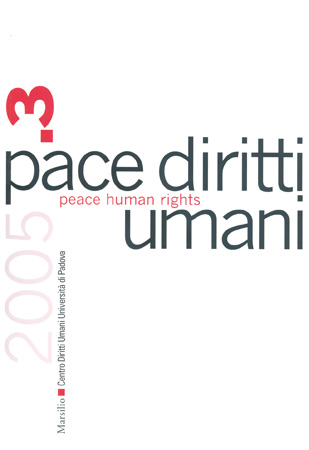Raccolte

L’evoluzione del concetto di salute
- Contenuto in
- Pace diritti umani - Peace Human Rights, 3/2005
- Tipologia pubblicazione
- Articolo / Saggio
- Pagine
- 21-36
- Lingua
- IT
The Evolution of the Health Concept Bruno Paccagnella
A new concept of human health has been proclaimed in the Statute, article 1, of the World Health Organization (WHO) in 1946, where the health has been defined as a state of physical, mental and social wellbeing of the individual, not merely the absence of diseases or infirmity. Recently, new proposals aim at including also the spiritual well-being in the concept of health. As concerns Italy, an active member-state of WHO, article 32 of its Constitution states that health is a right of the individuals and an interest of the community. The multi-dimensional concept of health is consistent with the problems raised by the epidemiological transition from the acute diseases prevalence to the chronic diseases prevalence, with the needs of the aging populations and with the evolution also of the concepts concerning the relations between men and total (i.e. bio-physical, social and economic) environments, according to the principles of the Human Ecology.
Going deeper into the concept of health and into the «genesis» of health, the «pre-requisites» of health have been identified as: peace, equity, satisfaction of basic needs (food, education, water and sanitation, decent housing, secure work and useful role in society). The «determinants» of health have been identified as: lifestyles, environments, services, biological factors. The system approach is useful for an olistic, global view of the complexity. Among the prerequisites for health are also the political will and the public support.
The impact of this evolution on general culture and professional education is still crucial. According to the new approach, health may be considered as a resource for the development, not merely as an objective to achieve in some circumstances. Health promotion becomes a new programme of political actions for the socio-economic development of the countries.

